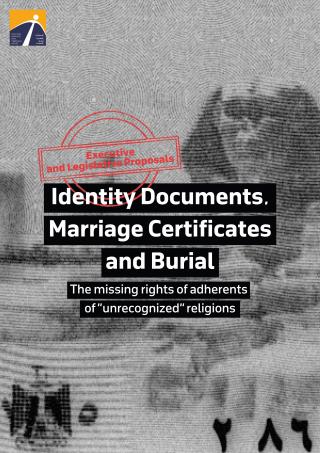Files: Freedom of Religion and Belief
EIPR welcomed the decision of the Zagazig Criminal Court on Wednesday, February 23, 2022 - to release Quranist researcher and blogger Reda Abdel Rahman without bail pending investigations in Kafr Saqr emergency state security misdemeanor N
February 26, 2022, the Administrative Court of the First Circuit (Liberties) held the first hearing of Case No.
EIPR presents the government and parliament with executive and legislative proposals to guarantee the basic rights of people of “unrecognized” religions and beliefs in Egypt




